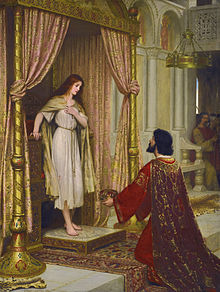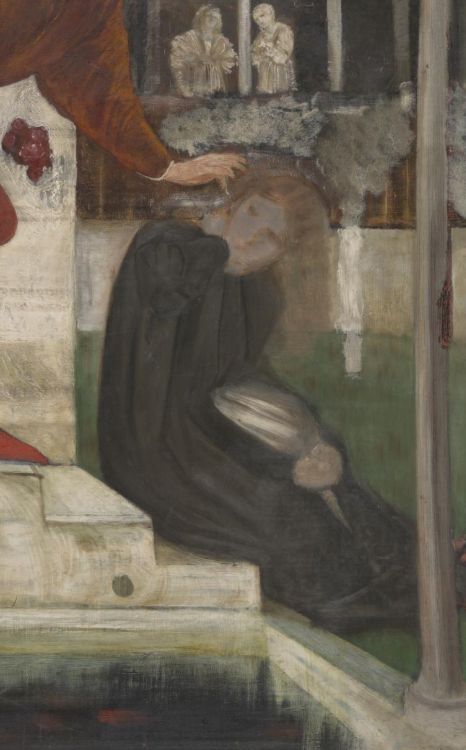created, & modified, =this.modified
tags:y2025
Is a 16th century broadside-ballad (a single sheet of inexpensive paper where printed on one side is a ballad)
Artists and writers have referenced the story, and King Cophetua has become a byword for “a man who falls in love with a woman instantly and proposes marriage immediately”.

Cophetua is an African king known for his lack of sexual attraction to women. One day, looking out of a palace window, he witnesses a young beggar, Penelophon, “clad all in grey”. Struck by love at first sight, Cophetua decides that he will either have the beggar as his wife or commit suicide.
Walking out into the street, he scatters coins for the beggars to gather and when Penelophon comes forward, he tells her that she is to be his wife. She agrees and becomes queen, and soon loses all trace of her former poverty and low class. The couple lives “a quiet life during their princely reign” and are much loved by their people. Eventually they die and are buried in the same tomb.

Tennyson - The Beggar-maid
Tennyson Her arms across her breast she laid; She was more fair than words can say; Barefooted came the beggar maid Before the king Cophetua. In robe and crown the king stept down, To meet and greet her on her way; “It is no wonder,” said the lords, “She is more beautiful than day.”
And shines the moon in clouded skies, She in poor attire was seen: One praised her ankles, one her eyes, One her dark hair and lovesome mien. So, sweet a face, such angel grace, In all that land had never been: Cophetua sware a royal oath: “That beggar maid shall be my queen!”